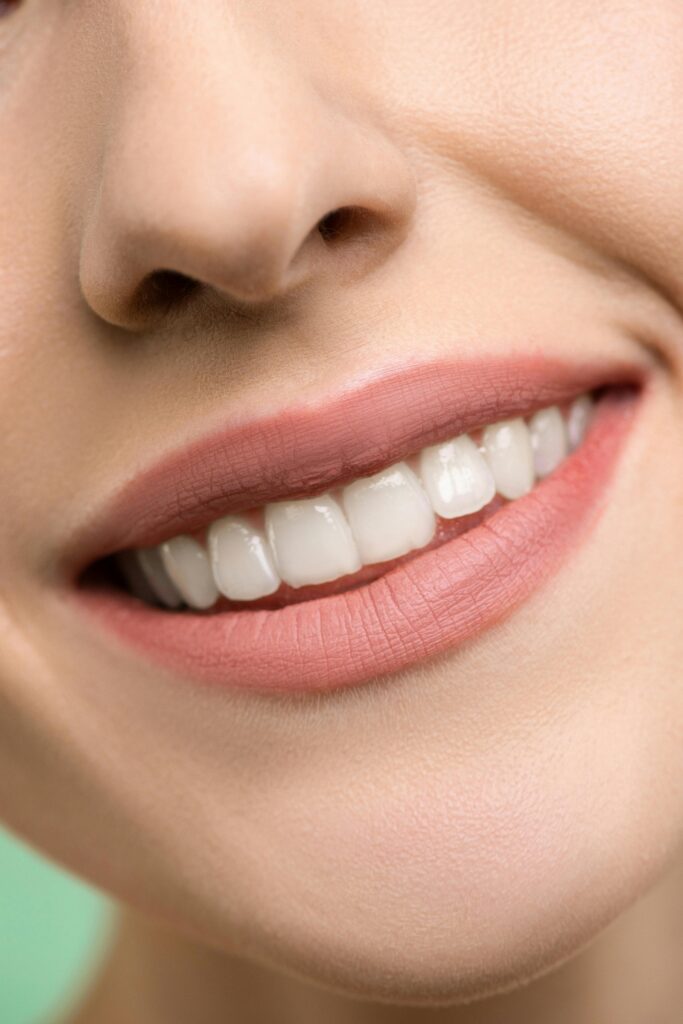Receding gums are more than just a cosmetic issue—they can impact oral health, making teeth more vulnerable to decay and sensitivity. While professional dental care is critical for managing gum recession, many people wonder if vitamins and nutrients can make a difference. Let’s explore the role of vitamins in supporting gum health and whether they can help combat receding gums.
What Are Receding Gums, and Why Do They Happen?
Receding gums occur when the gum tissue surrounding the teeth pulls back, exposing the tooth roots. This can lead to increased sensitivity, a higher risk of cavities, and even tooth loss if untreated. Common causes include: poor oral hygiene or over-brushing, gum disease (gingivitis or periodontitis), smoking or tobacco use, genetics, and hormonal changes. It’s a slow process that often goes unnoticed until symptoms like sensitivity or exposed roots appear. That’s why understanding the causes and potential remedies, including the role of vitamins, is so important.
How Vitamins Support Gum Health
Vitamins can’t regrow gum tissue, but they can strengthen and protect the existing tissue, slow gum recession, and support overall oral health. Here are some of the most impactful vitamins for gum health.
Vitamin C: The Collagen Booster
Vitamin C is famous for its role in collagen production—a protein that keeps your gums firm and resilient. It also helps fight inflammation and strengthen connective tissue. Think of it this way: a lack of vitamin C is like trying to build a house without bricks. Gums without collagen are weaker and more susceptible to infection. Sources: Citrus fruits, bell peppers, strawberries, and broccoli. Tip: If you notice bleeding gums, it could be an early sign of a vitamin C deficiency. Adding vitamin C-rich foods to your diet can help restore gum health.
Vitamin D: The Anti-Inflammatory Hero
Vitamin D doesn’t just support healthy bones; it also plays a big role in reducing inflammation in the gums. Research shows that adequate vitamin D levels may help prevent periodontal disease, a leading cause of gum recession. Sources: Sunlight, fortified milk, eggs, and fatty fish like salmon. Personal Note: Many people, especially those who spend most of their time indoors, don’t get enough vitamin D. If you’re one of them, a daily supplement might be worth considering.
Vitamin E: Nature’s Antioxidant
Vitamin E is a powerful antioxidant that protects gum tissue from damage caused by free radicals. It also promotes healing and reduces inflammation. Sources: Nuts, seeds, spinach, and avocados. Fun Fact: Vitamin E oil can even be applied directly to gums for added benefits. A gentle massage with vitamin E oil may soothe irritated gums.
B Vitamins: The Tissue Repair Crew
Vitamins like B12 and folic acid help maintain healthy oral tissues and prevent inflammation. They also support the healing process, making them essential for anyone dealing with gum issues. Sources: Meat, eggs, dairy, and leafy greens.
Other Nutrients to Boost Gum Health
Coenzyme Q10 (CoQ10): The Cellular Energizer
CoQ10 is a compound that supports cell repair and regeneration. Some studies suggest it may reduce gum inflammation and promote healing in people with gum disease. Sources: Fatty fish, organ meats, and supplements.
Calcium and Magnesium: The Dynamic Duo
Strong teeth rely on healthy gums, and that’s where calcium and magnesium come in. These minerals work together to maintain strong bones and teeth while supporting gum health. Sources: Dairy products, leafy greens, almonds, and whole grains.
Zinc: The Immune Booster
Zinc plays a role in wound healing and supports a healthy immune system, making it essential for keeping gums infection-free. Sources: Shellfish, red meat, seeds, and nuts.
Can Vitamins Really Help with Receding Gums?
While vitamins are essential for gum health, they aren’t a magic cure for receding gums. Gum tissue that’s already receded won’t grow back, but maintaining proper vitamin levels can slow the progression and strengthen the gums you have. The key is consistency. A balanced diet full of nutrient-rich foods, combined with good oral hygiene and regular dental check-ups, is the best way to support gum health.
Incorporating Vitamins into Your Routine
1. Eat a Balanced Diet
Focus on whole foods like fruits, vegetables, lean proteins, and healthy fats. These foods naturally contain the vitamins and minerals your gums need to thrive.
2. Consider Supplements
If dietary gaps exist, supplements can help fill them. For example, a product like Provadent offers a convenient way to ensure you’re getting essential nutrients for gum health. Look for options specifically formulated for oral care, and consult with a dentist before starting any new supplements.
3. Don’t Forget Oral Hygiene
Vitamins alone won’t prevent gum recession if oral care is neglected. Brush gently with a soft-bristled toothbrush, floss daily to remove plaque and debris, and use an antimicrobial mouthwash to reduce bacteria.
Professional Treatments for Receding Gums
When gums recede significantly, professional treatments may be necessary. These include scaling and root planing, gum grafts, and newer regenerative therapies. Vitamins can support healing during and after these procedures, making them a valuable addition to any treatment plan.
Final Thoughts
Vitamins can’t reverse receding gums, but they can support healthy gums and slow the process. Incorporating vitamin-rich foods, oral supplements like Provadent, and a solid oral care routine creates a strong foundation for gum health. If you’re concerned about your gums, don’t wait—schedule a visit with a dentist. Personalized advice and early intervention are key to protecting your smile.

